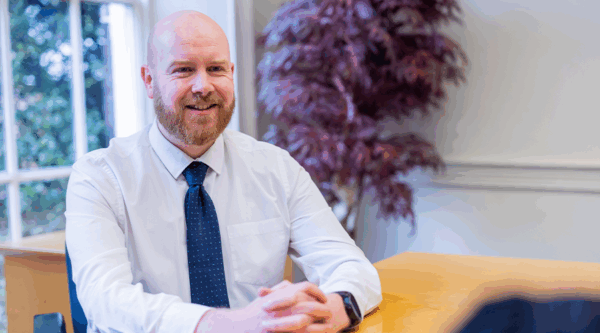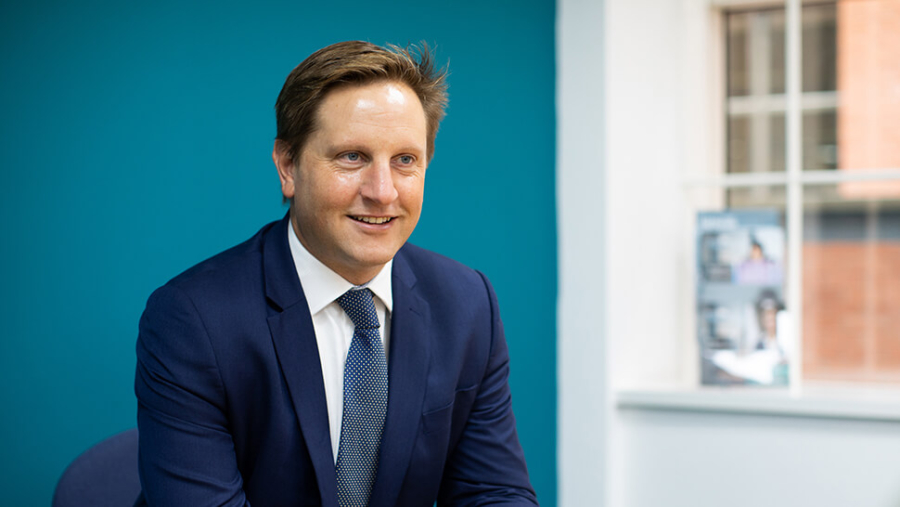

What type of legal advice do you provide?
As head of the Restructuring and Insolvency (R&I) team at HCR I oversee of a lot of the work that the team undertakes. This covers the whole gamut of R&I work, from advising boards of directors as to how best to formulate a viable turnaround strategy while mitigating risk, to advising lenders on their various enforcement options – forming a view as to how each of them might pan out, and helping to determine which is the best option.
The team also advises on general stakeholder engagement when corporates are in distress; and even when their client base or key supplier is in distress.
They also undertake contentious work, generally acting for Insolvency Practitioners bringing claims against former directors of a business in insolvency or third parties to help realise assets for the insolvency estate.
Why did you choose your specialism?
I qualified into the litigation team at Wright Hassall in 2002 and was soon being passed lots of insolvency litigation work by the head of insolvency before being asked to move and specialise in that type of work. Not long after that, I started getting involved in more advisory and transactional work, particularly in relation to the collapse of Rover and the impact that had on the West Midlands manufacturing community. I’ve stuck with that type of work ever since.
What type of work does your team do that is relevant to Homes England? Have you been involved in any Homes England projects?
We, as an R&I team, are often advising lenders as to the validity of their security and helping steer a path to get the best possible outcome for the lender. Homes England are atypical in this space as their overriding objective is one of levelling up.
We are well-appraised to ensure that Homes England are taking the right steps to protect their position but also giving directors and other key stakeholders the best opportunity to complete projects and help achieve the important agenda of creating more affordable housing.
We have to date been instructed on one Homes England project by the distressed investment team – many thanks to Rick Tasker – and I am pleased to confirm that the feedback was wholly positive.
What was your most memorable outcome for a client and why?
From a turnaround perspective, all outcomes that avoid an insolvency process can be seen as successful. I recall acting for one large retailer where we managed to avoid an insolvency process for three to four years. This allowed enough time and opportunity to put the business into an position such that when it ultimately did go into administration through a lender appointment, the outcome was rare – the business and the company itself survived the insolvency process and came out the other side and I am pleased to report it is thriving now.
As R&I professionals we lean on our real estate colleagues and employment teams very heavily and certainly do not take for granted that a failure of a business will, more often than not, lead to redundancies and risk for individuals – who all have mortgages to pay – and we take every step to minimise that risk.
How have you supported your local community?
In the modern era, local sport clubs – whether that be top tier county cricket clubs or premiership rugby teams – have encountered financial issues and it has been possible for our team to help support and navigate a path to come out the other side. Sport is often the hub of any local community, and we take great pleasure in helping these entities survive significant issues.
From a personal perspective, I have been involved in projects such as annual trips taking underprivileged children to the seaside, as well as being a school governor of primary schools in very deprived areas.
Why do you think a commitment to helping the planet is important? Can you give any examples where you have made a change to help the planet?
The issues our planet faces are well-known and the rate of change is dramatic – we all have a duty to protect what we can for our own benefit and those of our children, as well as for the good of all the other species that are at risk.
The steps I am taking are small in the scheme of things. I am trying to be better informed, to buy less and to recycle more.










